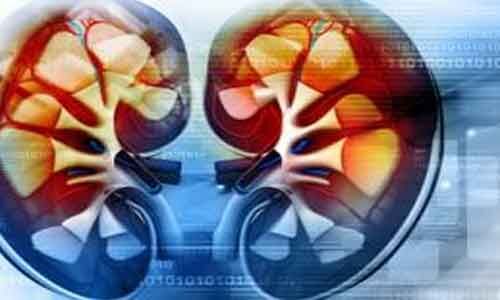- Home
- Medical news & Guidelines
- Anesthesiology
- Cardiology and CTVS
- Critical Care
- Dentistry
- Dermatology
- Diabetes and Endocrinology
- ENT
- Gastroenterology
- Medicine
- Nephrology
- Neurology
- Obstretics-Gynaecology
- Oncology
- Ophthalmology
- Orthopaedics
- Pediatrics-Neonatology
- Psychiatry
- Pulmonology
- Radiology
- Surgery
- Urology
- Laboratory Medicine
- Diet
- Nursing
- Paramedical
- Physiotherapy
- Health news
- Fact Check
- Bone Health Fact Check
- Brain Health Fact Check
- Cancer Related Fact Check
- Child Care Fact Check
- Dental and oral health fact check
- Diabetes and metabolic health fact check
- Diet and Nutrition Fact Check
- Eye and ENT Care Fact Check
- Fitness fact check
- Gut health fact check
- Heart health fact check
- Kidney health fact check
- Medical education fact check
- Men's health fact check
- Respiratory fact check
- Skin and hair care fact check
- Vaccine and Immunization fact check
- Women's health fact check
- AYUSH
- State News
- Andaman and Nicobar Islands
- Andhra Pradesh
- Arunachal Pradesh
- Assam
- Bihar
- Chandigarh
- Chattisgarh
- Dadra and Nagar Haveli
- Daman and Diu
- Delhi
- Goa
- Gujarat
- Haryana
- Himachal Pradesh
- Jammu & Kashmir
- Jharkhand
- Karnataka
- Kerala
- Ladakh
- Lakshadweep
- Madhya Pradesh
- Maharashtra
- Manipur
- Meghalaya
- Mizoram
- Nagaland
- Odisha
- Puducherry
- Punjab
- Rajasthan
- Sikkim
- Tamil Nadu
- Telangana
- Tripura
- Uttar Pradesh
- Uttrakhand
- West Bengal
- Medical Education
- Industry
Dapagliflozin prolongs survival in CKD patients with or without Diabetes: DAPA-CKD

Sophia Antipolis, France - Dapagliflozin reduces the risk of kidney failure, death from cardiovascular causes or heart failure hospitalisation and all-cause mortality in chronic kidney disease patients with or without type 2 diabetes. That's the main result of the DAPA-CKD trial presented in a Hot Line session today at ESC Congress 2020.
The DAPA-CKD trial tested the hypothesis that treatment with dapagliflozin is superior to placebo in reducing the risk of renal and cardiovascular events in patients with chronic kidney disease (with or without type 2 diabetes) already receiving a stable dose of either an angiotensin-converting enzyme (ACE) inhibitor or an angiotensin receptor blocker (ARB) as background therapy.
The primary composite endpoint was worsening kidney function (defined as >50% sustained decline in estimated glomerular filtration rate [eGFR] or onset of end-stage kidney disease), or death due to kidney disease or cardiovascular disease.
The secondary endpoints were, in hierarchical order: 1) a composite endpoint of worsening kidney function (defined as >50% sustained decline in eGFR or onset of end-stage kidney disease), or death from kidney failure; 2) a composite endpoint of hospitalisation for heart failure or cardiovascular death; and 3) all-cause mortality.
The trial enrolled 4,304 patients, aged 18 years and over, from 386 centres in 21 countries. All patients had an eGFR ≥25 and ≤75 mL/min/1.73m2; urinary albumin to creatinine ratio between ≥200 mg/g and ≤5000 mg/g; and were on a stable, maximum tolerated dose of an ACE inhibitor or ARB (unless contraindicated) for at least four weeks.
Patients were randomly allocated to dapagliflozin 10 mg or placebo once daily in addition to standard of care (i.e. an ACE inhibitor or ARB). The average age of participants was 61.8 years and 66.9% were male. A total of 2,906 (67.5%) patients had type 2 diabetes.
During a median follow-up of 2.4 years, there were 197 primary endpoint events with dapagliflozin and 312 with placebo. The hazard ratio (HR) for the primary endpoint was 0.61 (95% confidence interval [CI) 0.51–0.72; p=0.000000028). The benefit of dapagliflozin on the primary endpoint was consistent in patients with and without type 2 diabetes.
Dapagliflozin reduced all three secondary endpoints compared to placebo. The HRs were: 1) worsening renal function or death from kidney failure 0.56 (95% CI 0.45–0.68; p<0.0001); 2) hospitalisation for heart failure or cardiovascular death 0.71 (95% CI 0.55–0.92; p=0.0089); and 3) all-cause mortality 0.69 (95% CI 0.53–0.88; p=0.0035).
The safety and tolerability of dapagliflozin was in keeping with its established profile. In the placebo group, the proportion of patients who discontinued the study drug due to an adverse event or experienced a serious adverse event were 5.7% and 33.9%, respectively. The proportion of patients with these events was similar in the dapagliflozin group (5.5% and 29.5% respectively). Diabetic ketoacidosis was not reported in any patient randomised to dapagliflozin and occurred in two patients in the placebo group. Neither diabetic ketoacidosis nor severe hypoglycaemia were observed in patients without type 2 diabetes.
Study author Professor Hiddo J.L. Heerspink of University Medical Centre Groningen, the Netherlands, said: "DAPA-CKD showed that dapagliflozin reduced the risk of worsening kidney function or death from cardiovascular or kidney disease in patients with chronic kidney disease with and without type 2 diabetes. The results highlight the medicine's potential to benefit patients with chronic kidney disease who are in need of improved treatment options."
Hina Zahid Joined Medical Dialogue in 2017 with a passion to work as a Reporter. She coordinates with various national and international journals and association and covers all the stories related to Medical guidelines, Medical Journals, rare medical surgeries as well as all the updates in the medical field. Email: editorial@medicaldialogues.in. Contact no. 011-43720751
Dr Kamal Kant Kohli-MBBS, DTCD- a chest specialist with more than 30 years of practice and a flair for writing clinical articles, Dr Kamal Kant Kohli joined Medical Dialogues as a Chief Editor of Medical News. Besides writing articles, as an editor, he proofreads and verifies all the medical content published on Medical Dialogues including those coming from journals, studies,medical conferences,guidelines etc. Email: drkohli@medicaldialogues.in. Contact no. 011-43720751


